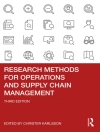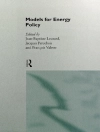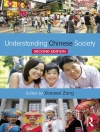While traditional in its coverage of the major research traditions that have developed over the past 100 years, Organizational Communication is the first textbook in the field that is written from a critical perspective while providing a comprehensive survey of theory and research in organizational communication.
Extensively updated and incorporating relevant current events, the Second Edition familiarizes students with the field of organizational communication—historically, conceptually, and practically—and challenges them to critically reflect on their common sense understandings of work and organizations, preparing them for participation in 21st-century organizational settings. Linking theory with practice, Dennis K. Mumby and new co-author Timothy R. Kuhn skillfully explore the significant role played by organizations and corporations in constructing our identities.
Зміст
Preface
Acknowledgments
PART I. STUDYING ORGANIZATIONS CRITICALLY
1. What Is Organizational Communication?
Time, Space, and the Emergence of the Modern Organization
Organizations as Communicative Structures of Power
Defining Organizational Communication
Communication, Organizations, and Work
Conclusion
Critical Applications
Key Terms
Student Study Site
2. Developing a Critical Approach to Organizational Communication
Understanding Theory in the Critical Analysis of Organizational Communication
Unpacking the Critical Approach
Understanding Organizational Communication From a Critical Perspective
Conclusion
Critical Applications
Key Terms
Student Study Site
PART II. STUDYING ORGANIZATIONAL COMMUNICATION HISTORICALLY
3. Fordism and Organizational Communication
The Fordist Organization
Fordism and Scientific Management
Fordism and Bureaucracy
Fordism and the Human Relations School
Fordism and Human Resources Management
Conclusion
Critical Applications
Key Terms
Student Study Site
4. Organizations as Communication Systems
Situating the Systems Perspective
The Principles of the Systems Perspective
The “New Science” of Systems Theory: Complexity and Chaos
Karl Weick: Organizing and Communicating
Conclusion
Critical Applications
Key Terms
Student Study Site
5. Communication, Culture, and Organizing
The Emergence of the Cultural Approach
Two Perspectives on Organizational Culture
Conclusion
Critical Applications
Key Terms
Student Study Site
PART III. CRITICAL PERSPECTIVES ON ORGANIZATIONAL COMMUNICATION AND THE NEW WORKPLACE
6. Post-Fordism and Organizational Communication
The Fall of Fordism and the Rise of Post-Fordism
Neoliberalism as an Economic System
Neoliberalism as a Hegemonic Discourse
The Post-Fordist Workplace: A New Organizational Model
Conclusion
Critical Applications
Key Terms
Student Study Site
7. Power and Resistance at Work
The Community Power Debate
Power, Ideology, and Organizational Communication
Resisting Workplace Control
Biopower and Organizational Communication
Conclusion
Critical Applications
Key Terms
Student Study Site
8. Communicating Gender at Work
Feminist Perspectives on Organizational Communication
Masculinity and Organizational Communication
Sexual Harassment in the Workplace
Conclusion
Critical Applications
Key Terms
Student Study Site
9. Communicating Difference at Work
Defining Difference at Work
Race and Organizational Communication
Sexuality and Organizational Communication
Conclusion
Critical Applications
Key Terms
Student Study Site
10. Branding, Work, and Consumption
Branding and Capitalism in the 20th Century
The Evolution of Branding: Three Models
Work, Branding, and the Entrepreneurial Self
The Ethics of Branding
Conclusion
Critical Applications
Key Terms
Student Study Site
11. Leadership Communication in the New Workplace
Traditional Perspectives on Leadership
New Approaches to Leadership
A Critical Communication Perspective on Leadership
Conclusion
Critical Applications
Key Terms
Student Study Site
12. Information and Communication Technologies in/at Work
Understanding Technology
New Technologies, New Challenges
Conclusion
Critical Applications
Key Terms
Student Study Site
13. Organizational Communication, Globalization, and Corporate Social Responsibility
Defining Globalization
Spheres of Globalization
Organizing Against Globalization
Globalization and Corporate Social Responsibility
Conclusion
Critical Applications
Key Terms
Student Study Site
14. Communication, Meaningful Work, and Personal Identity
Meaningful Work
Managing Work Identity: Some Historical Context
Creating and Managing Work Identities
No Collar, No Life
Conclusion
Critical Applications
Key Terms
Student Study Site
Glossary
References
Index
About the Authors
Про автора
Dennis K. Mumby is the Cary C. Boshamer Distinguished Professor of Communication at The University of North Carolina at Chapel Hill, USA. His research focuses on the communicative dynamics of organizational control and resistance under neoliberalism. He is a Fellow of the International Communication Association, and a National Communication Association Distinguished Scholar. He has authored or edited 7 books and over 60 articles in the area of critical organization studies, and his work has appeared in journals such as Academy of Management Review, Management Communication Quarterly, Organization Studies, Organization, and Human Relations. He is past chair of the Organizational Communication Division of NCA, and an 8-time winner of the division’s annual research award. He has served as chair of the Organizational Communication Division of the International Communication Association, and is a recipient of the division’s Fredric M. Jablin Award for contributions to the field of organizational communication.












